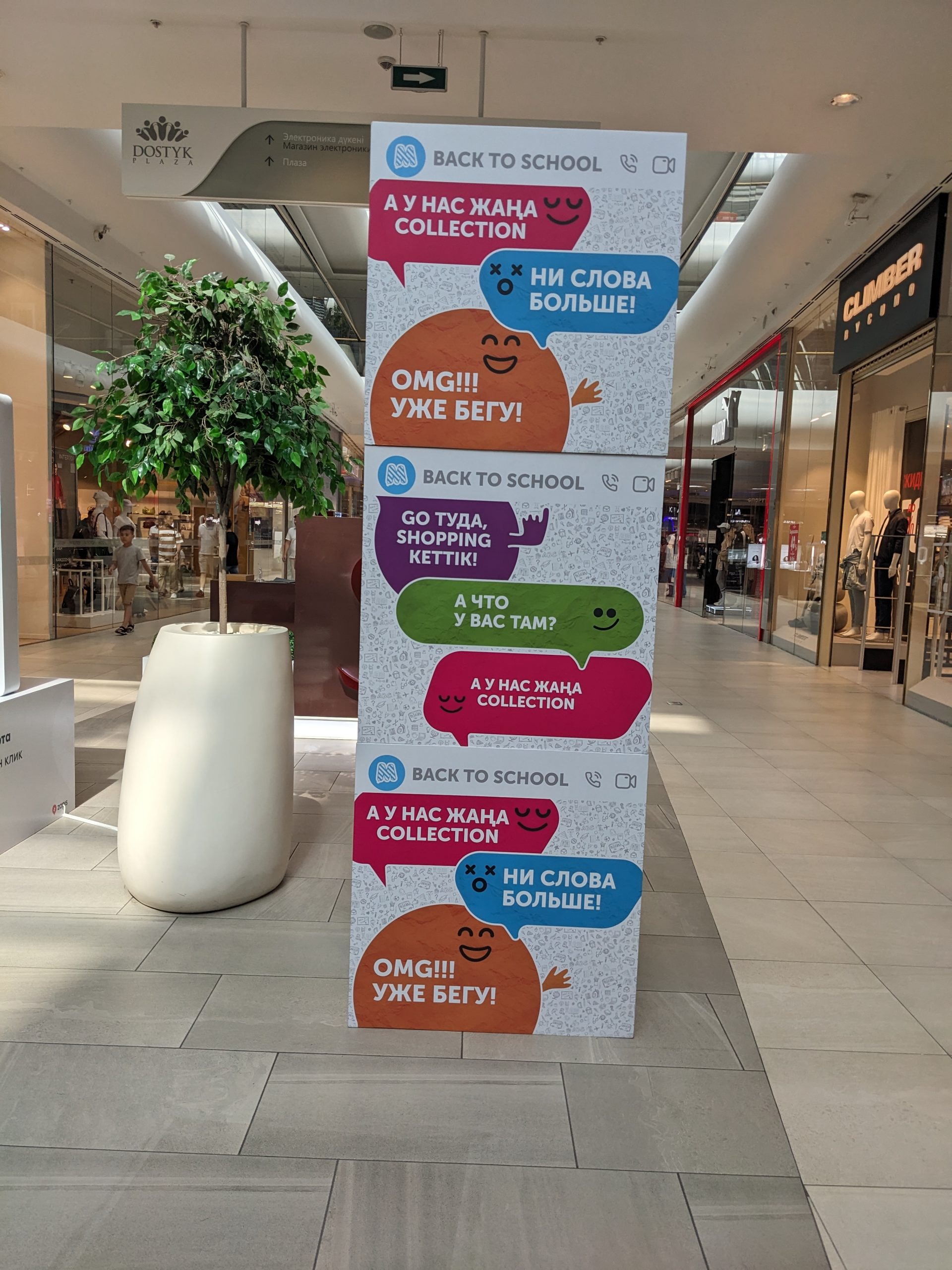Иммигранты о жизни в Америке
On this page you will watch some interviews with Russian-speaking immigrants in the United States.
Code-Switching (Переключение кодов)
People who are in a multilingual environment, like immigrants in the US, will often engage in code-switching. This refers to the act of mixing languages or alternating between multiple languages within one conversation. Sometimes it is because a particular term does not exist in one or the other language or does not express the same meaning, but it can also be for other reasons, like solidarity between speakers or to express a particular attitude.
In the context of Russian speakers in the United States, the mixture of a language that results is sometimes jokingly called “Runglish”. This word has also been used to describe the mixed language that has sometimes been used between Russian and American cosmonauts and astronauts on the International Space Station.
You can hear an extreme example of code-switching in this video, which became an early viral video for the Russian community.
In the videos that you will watch below, you will hear many instances of code-switching. Listen for them and challenge yourself to think about why the speaker chose to use an English word in that instance rather than its Russian equivalent.
Упражнение 31. Рунглиш.
Take a look at some of these signs, most of which are from Brighton Beach, New York. Each of them has at least one instance of code-switching. See if you can identify the instances of code-switching.
Interestingly, the last photograph is actually from Russia – code-switching between Russian and English has become popular in Russia as well.
In some environments, more than two languages are mixed. Kazakhstan has been working to develop its citizens as trilingual in Kazakh, Russian, and English, and you can see how this sign engages in code-switching between all 3 languages:

Sometimes you can also see mashups of Russian and English grammar as well, like where English words take on Russian grammar.
Here are a few examples:
These English words are being made plural using Russian patterns: бэби-ситтеры, клинеры, юзеры.
These English words are being turned into Russian verbs: пофиксить (to fix), драйвить (to drive).
Or sometimes phrases from English get translated into Russian even though that phrase isn’t normally used in standard Russian. For example, you might hear someone say “Я должен брать автобус”, which is a translation of the words used in English “take a bus”, rather than the standard Russian, which would be “сесть на автобус”.
Давайте послушаем! Иммигранты о жизни в Америке.
Follow the instructions in the slide show and watch one or more of the video clips according to your instructor’s directions. Remember that you can open the slide show in full screen if you would like to by clicking on the arrows on the bottom right.
Давайте поговорим!
Use the notes that you made in the previous activity to report to your classmates about what you learned about the people who were interviewed.
Remember to report on as many topic areas as possible:
- Отку́да, когда́, как эмигри́ровали
- Рабо́та, де́ньги, достиже́ния
- Что нра́вится / не нра́вится в Аме́рике
- Чем америка́нцы отлича́ются
- Сове́т
- Други́е те́мы
- Code-switching

Follow-up activities:
А. Explore Brighton Beach in Google Maps and see what other signs you can find in Russian.
Б. Watch more videos from the Новые американцы / New Americans YouTube channel and report about them to your class.

